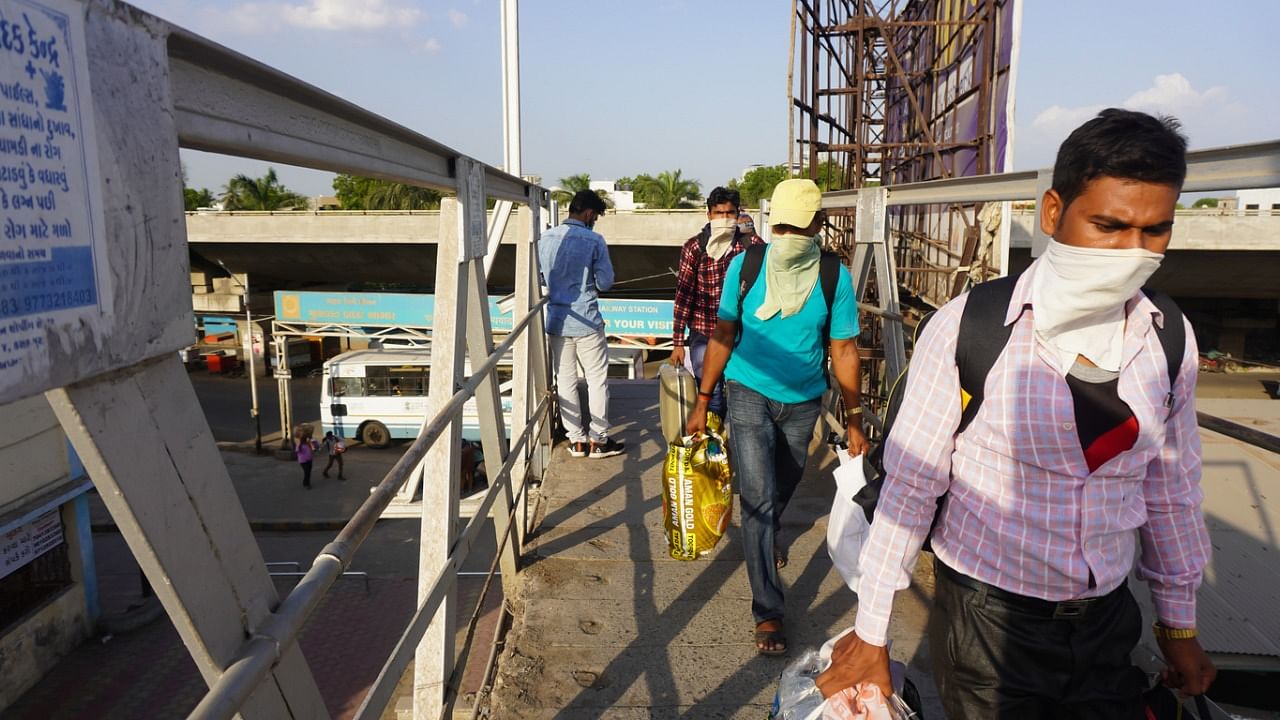
About 20 per cent of informal workers who lost their jobs during last year’s lockdown could not secure employment later in the year, a report by Azim Premji University says.
The report entitled 'State of Working India 2021-One year of Covid-19' recommends making the social security architecture more inclusive and effective this year.
The report is based on surveys held by independent bodies between March and December 2020 and made its assessments comparing the survey period with the previous year.
It said 47 per cent women did not return to workforce after the lockdown, while 7 per cent of men suffered permanent job losses since most moved to informal employment. Domestic work burden is largely suspected why the women could not return to work.
The report notes, “In Karnataka, the proportion of working women who spent more than 2 hours per day on cooking went up from 20 per cent to 62 per cent during the lockdown period.”
Monthly income of workers across sectors took a hit last year, especially in Rajasthan and Karnataka. Though 1 per cent of the salaried workers reported zero income during February in both the states, that figure had jumped to 42 per cent by September.
Further, almost 50 per cent of the salaried workers in the country moved to informal work, while 230 million found their income plummet below national minimum wage poverty line, according to the report.
The poorest that suffered biggest income losses also ended up taking loans larger than their earnings. Twenty per cent of vulnerable households reported no improvement in food intake six months after the lockdown.
The report also noted that the reach of the public distribution system under the Pradhan Mantri Garib Kalyan Yojana was more extensive than the Jan Dhan cash transfers scheme. It recommends extending the PDS scheme till the end of 2021 and Rs 5,000 cash transfers to vulnerable households for three months.
A panel discussion held by the university on the report also saw experts agreeing that lack of decentralisation was a problem during the first lockdown.
Yamini Aiyar, from the Centre for Policy Research, pointed to the lack of political maturity in the country about the functioning of government at different levels. Mallige, from Karnataka Janashakthi, said decades of sustained planning were needed to create security nets, adding that a single order cannot hold good for the hole country.
Jean Dreze from Ranchi University noted that the livelihood crises are likely to continue for two to three years, and efficient policies needed to be evolved to confront them.